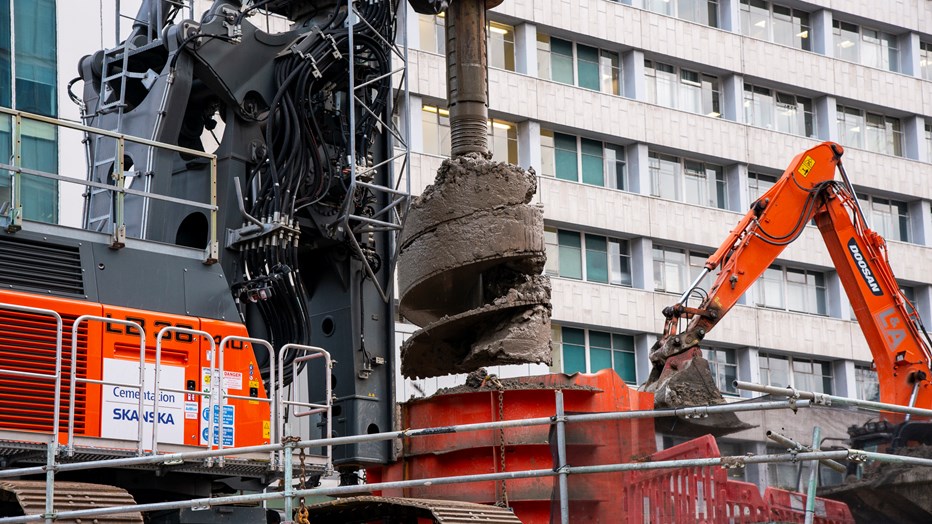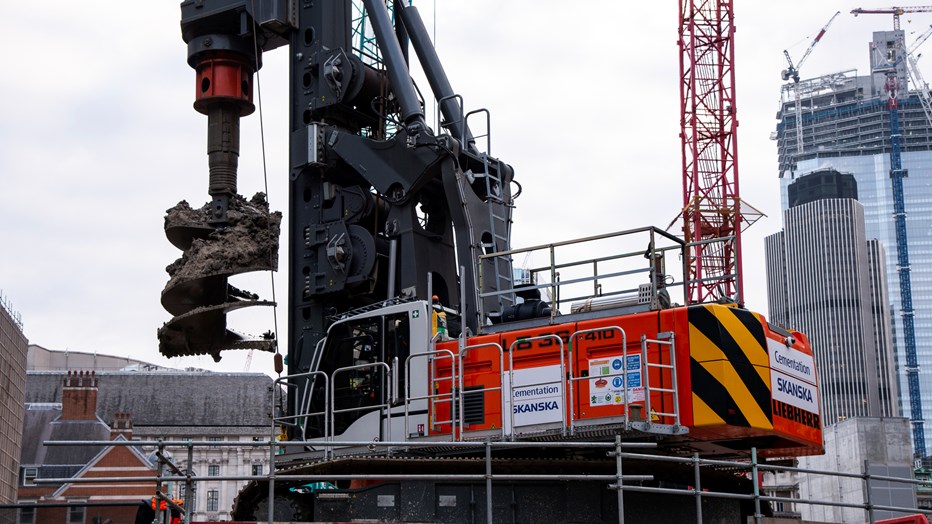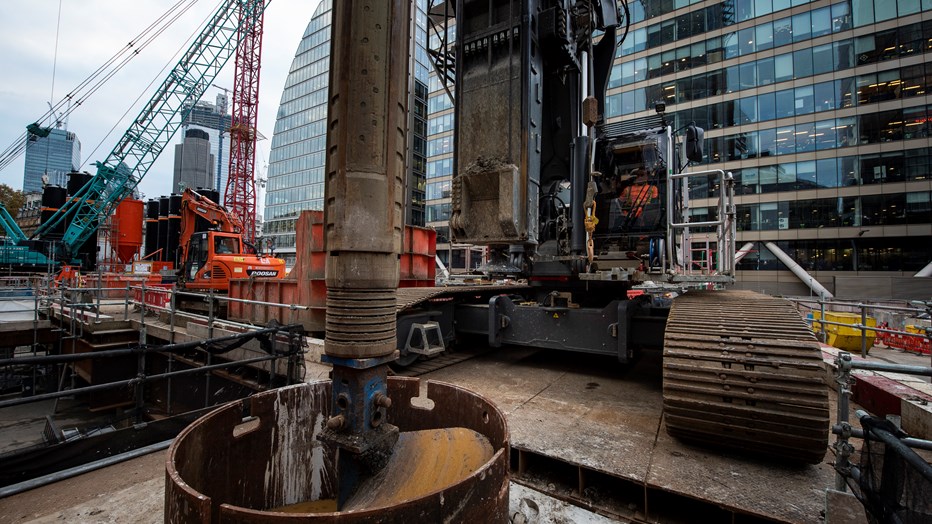The project
21 Moorfields lies at the northern edge of the City of London where developers Landsec are creating a 469,000 sq. ft, 17-storey office development as the new UK headquarters for Deutsche Bank, along with high quality retail space. In order to deliver this flagship development on one of the most complex sites in London an industry first foundation solution was required, which involved piling through Moorgate station.
The challenge
The site straddles the Moorgate Tube station serving the Circle/Metropolitan line, the City extension branch of Thameslink as well as the western entrance to the Liverpool Street Crossrail station. The massive Crossrail engineering works would be taking place at the same time. On top of this it was crucial that the stations remained fully operational for the duration of the project.
Site constraints restricted the foundations to 15 permanent piles. The project was seen as high-risk in that there was no precedent for such load bearing on so few piled foundations. There was zero margin for error, and any defective work would have resulted in a project re-design, delay and additional costs. It required a highly integrated and collaborative way of working to ensure successful delivery – with Landsec, our customer Mace, engineer Robert Bird Group and specialist sub-consultant Geotechnical Consulting Group.
The Solution
Working above a live underground station presented a number of challenges. The 120t piling rig was transported and lifted into the site using a specialist self-propelled modular transporter (SPMT), manoeuvring through narrow streets, and delivering the rig to the temporary steel working platform 2m above street level. Three elements were key to the scheme:
- High load-bearing piles – the foundations scheme comprised eleven 2.4m diameter bearing piles, four 1.8m diameter bearing piles and one 1.2m diameter sacrificial test pile. A 200t test frame was constructed above the test and reaction piles in order to achieve the required 50MN maximum test load, believed to be the maximum top-down static load ever applied to a pile in the UK. The test pile and reaction piles were equipped with fibre optics and strain gauges at multiple levels. All piles were 58-60m deep, constructed under bentonite and base grouted post-construction.
- Fibre Optic pile monitoring – we installed Cementation’s patented system of thermal integrity testing (CemOptic) cable. This uses distributed fibre optic sensing (DFOS) to monitor heat produced by the concrete as it hydrates, enabling the team to assess the integrity of the concrete. In total, over 14km of fibre optic cable was installed. This will allow ongoing measurement of each pile during the life of the structure providing an unprecedented understanding of its ongoing performance.
- Innovative spoil removal – all spoil had to be removed using a purpose-built spin off skip, which prevented loose material from falling onto the retained deck (the Moorgate underground station roof). In addition to this any excess bentonite produced during the concreting operation had to be removed from the bore without overflowing into the station. To achieve this a bailing tool was designed which attached to the piling rig.
Outcome
Our collaborative and innovative approach enabled this unprecedented project to be successfully completed, two months ahead of schedule and on budget. Such ground-breaking work has never been undertaken before in the UK and has the potential to significantly influence the industry’s understanding of pile behaviour and design. This achievement was recognised by both our customer and industry.
Mark Jackson, Associate Director at Mace said: “From Cementation’s first involvement at the very early stages of design, their team have been very cooperative and professional in their approach to the project. It was a very high-risk project with only 15 permanent piles designed to provide the foundations of the future main build. Despite the high-risk nature of the project, Cementation successfully planned, managed and mitigated the risks throughout. Their collaborative and innovative approach with the whole 21 Moorfields project team enabled their works to be successfully delivered and completed two months early on site.”
The success of the project has led to industry recognition, being named UK Geotechnical Team of the Year and collecting the award for Technical Excellence at the 2019 Ground Engineering Awards. In 2020, the team were awarded the prestigious Ground Engineering Fleming Award. Judges said the team, “pushed the boundaries of design and construction practices to deliver an industry first foundation solution.”



